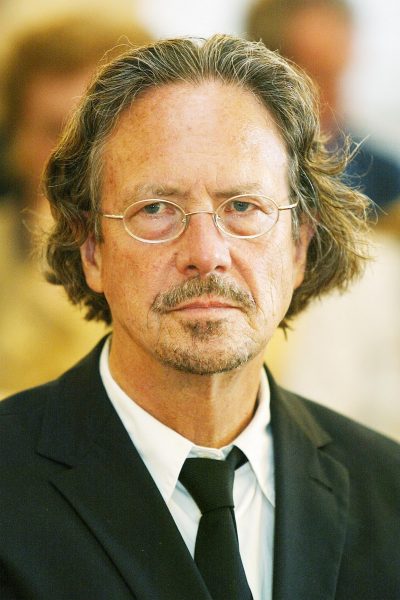Peter Handke Nobel Prize Uproar Overlooks Evidence of Flawed Srebrenica Conclusions

Ed Vulliamy (The Guardian, Opinion, 12 October 2019) was quick to join the chorus of attacks on Peter Handke, this year’s winner of the Nobel Prize for Literature, as “an apologist for genocide within living memory at the heart of Europe”.
But, in the years since Mr Vulliamy and others entrenched a view of the 1990s Balkan conflicts that survives to this day, a canon of evidence has emerged to support a different interpretation.
We (the Balkan Conflicts Research Team) are an informal collective of more than 30 researchers, authors, journalists, academics, lawyers, NGO officials and others. Over the last 20 years and more, we have exchanged, discussed and analysed all the information we can lay a hand on.
We began by accepting much of the official narrative. Gradually we realised we should not have done so because we could find little or no hard evidence to support it.
Two years ago we began to take a very hard look at the Hague war crimes Tribunal for Yugoslavia. By the time it closed in December 2017, it had become the bulwark supporting the official narrative of the Balkan wars. The long sentences handed down to those charged with war crimes (virtually all of them Serbs) were seen as the final proof.
Surely this UN-created international criminal court could only have reached such verdicts on the basis of compelling, hard evidence which had been properly tested in exacting proceedings? That was not the case. We found that the crucial evidence to support the ICTY’s convictions was virtually untested: raw forensic and DNA evidence was merely reported to the court, not made available for independent expert analysis; intercepts of Bosnian Serb radio communications were provided in almost all cases as transcripts because the original recordings had been ‘destroyed’; and crucial witness testimony was overwhelmingly from “protected” witnesses who gave evidence anonymously and by remote link so they could not be seen in the court. On top of this, academic estimates have concluded that the vast majority of all evidence heard in ICTY trials was hearsay.
To make matters worse, we found conclusive evidence that deliberate steps were taken to ensure that the International Commission for Missing Persons, a body set up by President Bill Clinton in 1996 to gather factual evidence for the ICTY, would never have to make available the raw evidence it had gathered for peer review by anyone. Laws passed in Bosnia in 1998 and Croatia 2002 gave the ICMP, an organisation with a staff more than 90% made up of Bosnian Muslims, absolute immunity from any attempt to subpoena its its raw data.
Even the ‘breakthrough’ methodology the ICMP claimed to have developed to identify nearly 7,000 bodies recovered after the fall of Srebrenica could not be prised out of them. This was by far the quickest and most complete DNA identification process ever carried out – and this despite the recovered bodies decaying in the earth for at least 5 years before exhumation. Yet defendants were denied their absolute right to have access to all this material and test it comprehensively.
Mr Vulliamy has always denigrated the views of those who, unlike him, had not seen events from the front line. The Balkan conflicts proved to be dangerous for journalists: those who worked there certainly showed courage. Being there, however, was not necessarily a way to understand what was happening. Few western journalists spoke Serbo-Croat. The majority of their information came from official spokesmen and stringers.
When the UN finally reported on the Bosnian camps, the story they told was far removed from furore that followed the reports made by Mr Vulliamy and the ITN team in 1992. The UN concluded that all sides had run camps, mainly as reception centres for people who had no access to food in their area. These camps were rough and ready and it was likely that, again on all sides, there had been abuses. But this was not remarkable in a conflict; if anything the UN concluded it was at a level slightly below the average. Just before his death, Bosnian Muslim President Alija Izetbegovic surprised Bernard Kouchner and Paddy Ashdown by telling them there had been no death camps in Bosnia.
To call anyone who challenges the official version of the conflicts a “genocide apologist” is a stock response for those unprepared to discuss the facts – a brick wall intended to make it impossible to bring truth to the surface. We believe that Peter Handke’s expressed views on this sad chapter of Balkan history are sincere and well founded – and much closer to the mark than those of his critics.
*
Note to readers: please click the share buttons above or below. Forward this article to your email lists. Crosspost on your blog site, internet forums. etc.
This article was originally published on Srebrenica Project.
Stephen Karganovic is president of “Srebrenica Historical Project,” an NGO registered in the Netherlands to investigate the factual matrix and background of events that took place in Srebrenica in July of 1995.

